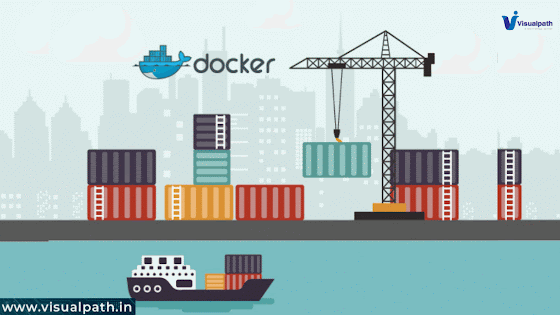- Get link
- X
- Other Apps
- Get link
- X
- Other Apps
In GCP DevOps, Containerization is a crucial aspect of modern DevOps practices, offering a streamlined way to develop, deploy, and manage applications. In the context of Google Cloud Platform (GCP) DevOps, learning objectives for containerization focus on understanding the principles of container technology, mastering the tools provided by GCP, and implementing best practices for efficient application lifecycle management. Here’s a closer look at the key learning objectives for containerization in GCP DevOps. GCP DevOps Online Training
1. Understanding Containerization
The
first learning objective is to grasp the fundamental concepts of
containerization. This includes understanding what containers are, how they
differ from virtual machines, and why they are beneficial in a DevOps
environment. Containers provide a consistent environment for application
execution, which helps ensure that software runs the same way regardless of
where it is deployed. This consistency simplifies development, testing, and
deployment, making it a core component of continuous integration and continuous
deployment (CI/CD) pipelines. GCP DevOps
Training
2. Familiarity with Docker
Docker is the
leading containerization platform and a vital skill for anyone working in DevOps.
The learning objectives here include: GCP DevOps
Training in Hyderabad
- Building Docker Images: Learning how to create Docker images from Dockerfiles,
understanding layers, and image optimization.
- Managing Docker Containers: Mastering the command-line interface to run, stop, and manage
containers efficiently.
- Networking and Storage: Understanding how Docker
handles networking and persistent storage solutions.
3. Mastery of Google Kubernetes Engine (GKE)
GKE is Google
Cloud’s managed Kubernetes service, which automates container orchestration.
Key learning objectives include:
- Kubernetes Architecture: Understanding nodes, pods, clusters, and how Kubernetes schedules
containers across multiple nodes.
- Deploying Applications: Learning how to deploy applications on GKE, manage scaling, updates,
and rollbacks.
- Service Management: Implementing Kubernetes services for load balancing, service
discovery, and managing external traffic.
4. Integrating GCP DevOps Tools
Google Cloud
provides various tools and services that integrate with containerized
environments, such as: GCP DevOps
Training institute in Ameerpet
- Cloud Build:
Automate builds and tests for Docker containers as part of the CI/CD
pipeline.
- Cloud Run:
Deploy containerized applications directly without needing a full
Kubernetes setup.
- Artifact Registry: Store and manage Docker images securely.
The learning
objectives include integrating these tools into DevOps workflows to enhance
automation, scalability, and security.
5. Implementing Security Best Practices
Security is
paramount in containerization. Learning objectives include:
- Container Security: Implementing best practices for securing containers, such as
minimizing image vulnerabilities and managing secrets.
- Role-Based Access Control (RBAC): Configuring Kubernetes RBAC to control who can access and manage
cluster resources.
- Monitoring and Logging: Using GCP tools like Stackdriver to monitor containers, analyze
logs, and set up alerts for potential issues.
6. Achieving Operational Excellence
Finally,
the objective is to achieve operational excellence by leveraging GCP’s
capabilities to optimize containerized applications. This includes: Google Cloud
Platform Training Hyderabad
- Autoscaling:
Configuring GKE to scale applications automatically based on demand,
ensuring high availability and cost-effectiveness.
- Resource Management: Efficiently managing resources like CPU and memory to optimize
performance and reduce costs.
- Continuous Deployment: Streamlining deployment processes using CI/CD pipelines with
tools like Jenkins integrated with GKE. GCP
DevOps Training in Ameerpet
Conclusion
By achieving these
learning objectives, DevOps professionals can effectively harness the power of
containerization within GCP. This
enables organizations to deliver applications faster, with greater reliability
and scalability. Containerization in GCP DevOps empowers teams to focus on
innovation and agility, making it an essential skill for modern cloud-based
development environments.
Visualpath is the Leading and Best Software
Online Training Institute in Hyderabad. Avail complete
GCP DevOps Online Training Worldwide. You will get the best course at an
affordable cost.
Attend Free Demo
Call on
- +91-9989971070.
Visit: https://visualpathblogs.com/
WhatsApp: https://www.whatsapp.com/catalog/917032290546/
Visit https://visualpath.in/devops-with-gcp-online-training.html
DevOps On Google Cloud Platform Online Training
GCP DevOps Online Training
GCP DevOps Training institute in Ameerpet
Google Cloud Platform Training Hyderabad
- Get link
- X
- Other Apps

Comments
Post a Comment